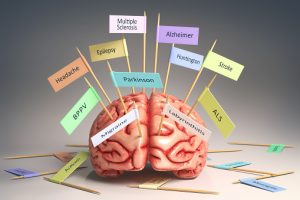September 21 is World Alzheimer’s Day, so we present our top articles that discuss Alzheimer’s disease and related topics, including cataracts, psoriasis, Parkinson’s disease, type 2 diabetes, cholesterol, amyloid plaques, and traumatic brain injury.
World Alzheimer’s Day aims to raise awareness about Alzheimer’s disease, which is growing as the world’s population continues to age. The Fisher Center for Alzheimer’s Research Foundation estimates that every 68 seconds someone develops Alzheimer’s disease. By 2050, it is estimated that 16 million Americans will live with Alzheimer’s disease – quadruple of the current statistics.
Cataracts and Alzheimer’s disease linked to common gene: Study
Advertisement
 Cataracts and Alzheimer’s disease have been found to be linked to a common gene. Both conditions arise with age, but the latest findings now add further evidence to a genetic link, too.
Cataracts and Alzheimer’s disease have been found to be linked to a common gene. Both conditions arise with age, but the latest findings now add further evidence to a genetic link, too.
The researchers looked at the brain MRIs of the participants in the Framingham Offspring Eye Study cohort. The researchers found a strong correlation between cortical cataract and Alzheimer’s disease-related brain degeneration. Particularly impacted was the volume of the temporal horn, a part of the brain which is commonly enlarged in Alzheimer’s disease. Cortical cataract was also associated with poorer performance on cognitive tests.
A genome-wide association study was also conducted looking at nearly 190,000 single-nucleotide polymorphisms (SNPs), or DNA sequence variations. The researchers uncovered three specific intronic SNPs in the gene coding of a protein essential in cell adherence and formation of connective structures. Continue reading…
Psoriasis drug may help treat Alzheimer’s disease: Study
 Psoriasis drug may help treat Alzheimer’s disease, according to research findings. The number of people living with dementia is expected to grow exponentially by the year 2050, so there is a pressing need for treatment options for dementia and Alzheimer’s disease. Dementia is one of the most common health problems among the elderly. Researchers at the Department of Psychiatry and Psychotherapy of the University Medical Center of Johannes Gutenberg University Mainz (JGU) have found that Alzheimer’s disease may possibly be treated with a common psoriasis drug, as it activates the enzyme ADAM10 in Alzheimer’s disease patients. The enzyme is capable of suppressing Alzheimer’s disease-related effects, namely, impaired cerebral function.
Psoriasis drug may help treat Alzheimer’s disease, according to research findings. The number of people living with dementia is expected to grow exponentially by the year 2050, so there is a pressing need for treatment options for dementia and Alzheimer’s disease. Dementia is one of the most common health problems among the elderly. Researchers at the Department of Psychiatry and Psychotherapy of the University Medical Center of Johannes Gutenberg University Mainz (JGU) have found that Alzheimer’s disease may possibly be treated with a common psoriasis drug, as it activates the enzyme ADAM10 in Alzheimer’s disease patients. The enzyme is capable of suppressing Alzheimer’s disease-related effects, namely, impaired cerebral function.
Although the exact Alzheimer’s trigger is unknown, it is established that activity of certain enzymes does play a role in the onset and development of the disease. The researchers targeted ADAM10 by administering an oral drug commonly used for psoriasis to Alzheimer’s patients. The drug led to elevated levels of the nerve cell-protecting growth factor APPs-alpha in their spinal fluid. This stimulates the activity of ADAM10, which reduces the buildup of amyloid plaques commonly seen in Alzheimer’s disease. ADAM10 has been shown to improve memory and enhance learning capability. Continue reading…
Traumatic brain injury associated with Parkinson’s disease, but not Alzheimer’s disease or incident dementia
 Traumatic brain injury (TBI) with a loss of consciousness (LOC) has been found to be associated with later-life Parkinson’s disease, but not Alzheimer’s disease or incident dementia. The Centers for Disease Control and Prevention estimated that 1.3 million Americans visit the emergency room every year for a traumatic brain injury, so the later-effects of TBI are important to understand.
Traumatic brain injury (TBI) with a loss of consciousness (LOC) has been found to be associated with later-life Parkinson’s disease, but not Alzheimer’s disease or incident dementia. The Centers for Disease Control and Prevention estimated that 1.3 million Americans visit the emergency room every year for a traumatic brain injury, so the later-effects of TBI are important to understand.
The researchers studied the medical records of 7,130 older adults of which 865 suffered a TBI with LOC. Among the latter, 142 had been unconscious for over an hour. The researchers evaluated the associations between TBI and late-life clinical outcomes like mild cognitive impairment, dementia, and Alzheimer’s disease. They were also examining brain autopsies available for roughly 23 percent of the participants, looking for links between TBI and neuropathological findings. Continue reading…
Brain tangles in type 2 diabetes point to Alzheimer’s disease
 Until very recently, tau tangles in the brain were associated with Alzheimer’s disease, but now a recent study out of Australia links tangle buildup in the brain to type 2 diabetes. According to the author of the study Dr. Velandai Srikanth, who is also an associate professor and specialist senior geriatrician at Monash University in Melbourne, diabetes may be linked to the buildup of “tangles” in the brain, separate from Alzheimer’s disease. The details of the study are available in the journal Neurology.
Until very recently, tau tangles in the brain were associated with Alzheimer’s disease, but now a recent study out of Australia links tangle buildup in the brain to type 2 diabetes. According to the author of the study Dr. Velandai Srikanth, who is also an associate professor and specialist senior geriatrician at Monash University in Melbourne, diabetes may be linked to the buildup of “tangles” in the brain, separate from Alzheimer’s disease. The details of the study are available in the journal Neurology.
Advertisement
For the study, the team used data from the U.S. Alzheimer’s Disease Neuroimaging Initiative. The researchers analyzed the relationship between type 2 diabetes and the loss of brain cell connections. They also analyzed the levels of beta-amyloid and tangles of protein in the spinal fluid of the 816 participants (average age 74). Continue reading…
High bad cholesterol levels linked to amyloid plaque deposits characteristic of Alzheimer’s disease: Study
 High LDL (bad) cholesterol levels are linked to amyloid plaque deposits, a signature characteristic of Alzheimer’s disease. On the other hand, high levels of ‘good’ HDL cholesterol and low levels of LDL cholesterol have been found to correlate with lower amyloid plaque deposits in the brain.
High LDL (bad) cholesterol levels are linked to amyloid plaque deposits, a signature characteristic of Alzheimer’s disease. On the other hand, high levels of ‘good’ HDL cholesterol and low levels of LDL cholesterol have been found to correlate with lower amyloid plaque deposits in the brain.
Lead study author Bruce Reed said, “Our study shows that both higher levels of HDL — good — and lower levels of LDL — bad — cholesterol in the bloodstream are associated with lower levels of amyloid plaque deposits in the brain. Unhealthy patterns of cholesterol could be directly causing the higher levels of amyloid known to contribute to Alzheimer’s, in the same way that such patterns promote heart disease.” Continue reading…
